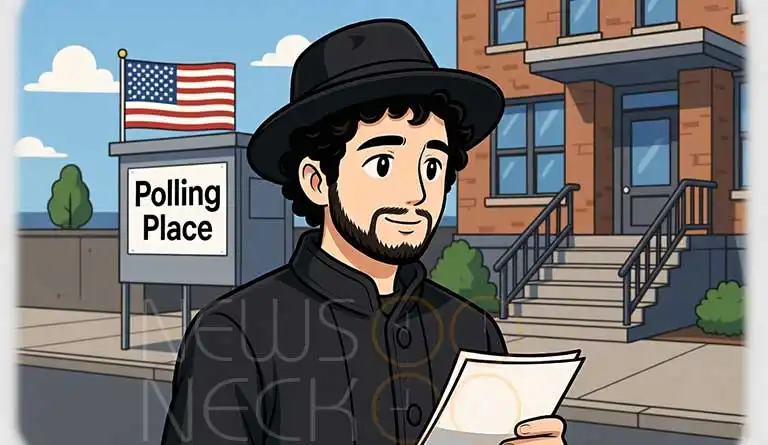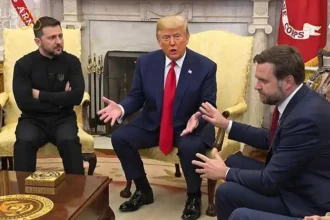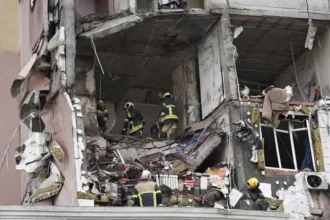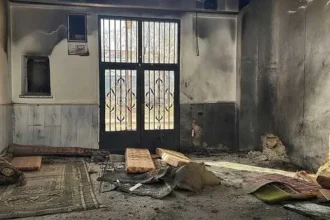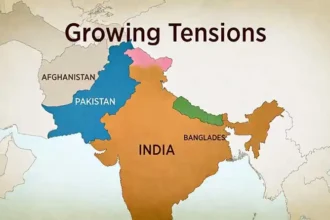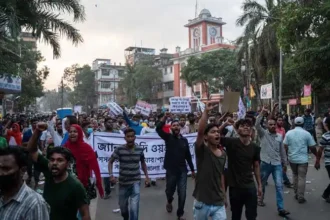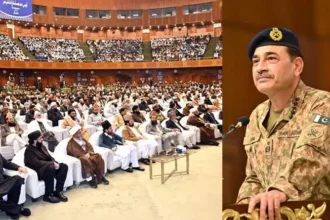A City Divided: As Mamdani Takes Power, Jewish New Yorkers Wrestle With Hope and Fear
In the aftermath of a seismic shift in New York City politics, the phone call was polite, professional, and pregnant with unspoken tension. From one end of the line was Senator Chuck Schumer, the most powerful Jewish politician in America. On the other was Zohran Mamdani, the city’s mayor-elect, whose history of pro-Palestinian activism had just torn open a deep political rift within the Jewish community Schumer calls his own.
Schumer had not endorsed Mamdani. He would not even say who he voted for. But in the clear light of Wednesday morning, tradition demanded a call. “We had a very, very good conversation,” Schumer told reporters, his words carefully measured. They spoke of caring for New York and improving the city. It was a political handshake, a necessary first step, but it could not paper over the profound unease coursing through the nation’s largest Jewish community.
The election of Mamdani, a progressive Democrat, has laid bare a painful and complex schism. For generations, Jewish voters have been a reliable pillar of the Democratic coalition. But on Tuesday, that pillar showed significant cracks. Preliminary exit polls revealed a stark divide: about 64% of Jewish voters cast their ballots for independent former Governor Andrew Cuomo, while only about a third supported Mamdani.
The results tell a story of a community at a crossroads, wrestling with its identity, its safety, and its political home.
“Mazel Tov” and a “Monitor”
For some, particularly younger and more progressive Jews, Mamdani’s victory was a cause for celebration. The group Jews for Racial & Economic Justice jubilantly posted “Mazel Tov” on social media. Brad Lander, the city’s outgoing comptroller and a prominent Jewish supporter, wore a profane anti-Cuomo shirt to Mamdani’s victory party, a clear signal that for him, the new mayor represented a bold and necessary change.
But for many others, the win was met with a deep-seated fear, fueled by Mamdani’s past activism. His support for the Boycott, Divestment, and Sanctions (BDS) movement, his challenges to Israel’s status as a Jewish state, and his past refusal to explicitly condemn certain slogans seen as threatening have left them feeling alienated and under threat.
Highlighting the extent of this growing distrust, the Anti-Defamation League a prominent Jewish advocacy group announced on Wednesday the launch of a new “Mamdani Monitor.” announced the creation of a “Mamdani Monitor” on Wednesday. The project promises to track the mayor-elect’s policies and appointments, establishing a tip line for antisemitic incidents. It is an unprecedented act of public scrutiny for a mayor before he has even taken the oath of office.
“We expect the mayor of the city that has the world’s largest Jewish population to take a clear and firm stand against antisemitism in every form,” said ADL CEO Jonathan Greenblatt in a statement.
Mamdani, for his part, responded with skepticism, questioning Greenblatt’s honesty and pointing to his own recent efforts to engage with the Jewish community, including attending High Holiday services.
You Might Like it: Zohran Mamdani’s Victory Signals a City’s Turn…
The Voice of the “Conflicted”
Caught in the middle are voters like Alana Zeitchik, an Israeli-American Brooklyn resident whose family members were kidnapped by Hamas. She represents a significant bloc of Jewish New Yorkers who find themselves torn.
Zeitchik left the mayor’s section of her ballot blank, unable to bring herself to vote for either Mamdani or Cuomo. She agrees with much of Mamdani’s domestic agenda on affordability and equity. Yet, she feels his worldview has created a “permission structure” for antisemitism within progressive circles.
“I want him to succeed. It’s just that he’s not yet shown me that he’s earned my vote,” she told CNN, describing herself as “very conflicted.” She pushed back against a binary narrative, stating, “I don’t believe he poses any real harm to our community, but I do think it’s wrong for some in the Jewish community to dismiss these genuine concerns.”
This internal conflict reflects a broader historical truth, according to Lila Corwin Berman, a professor of Jewish history at New York University. “There has always been a diversity of views about what is best” among Jewish New Yorkers, she said, challenging the idea of a single, monolithic political voice.
Now, the task of unifying this diverse and divided community falls to Mamdani. On Wednesday, he promised to serve as a mayor for all, committing to collaborate with rabbis and community leaders “to fulfill the promise of not only safeguarding Jewish New Yorkers, but celebrating and cherishing them.”
But as the “Mamdani Monitor” goes live and the cheers of “Mazel Tov” fade, the new mayor inherits a city where his every word and action on issues of Jewish life will be weighed, celebrated, and feared by a community watching his every move.
Author: Yasir Khan
Date: 06 Nov, 2025
For More Updates, Visit Newsneck


